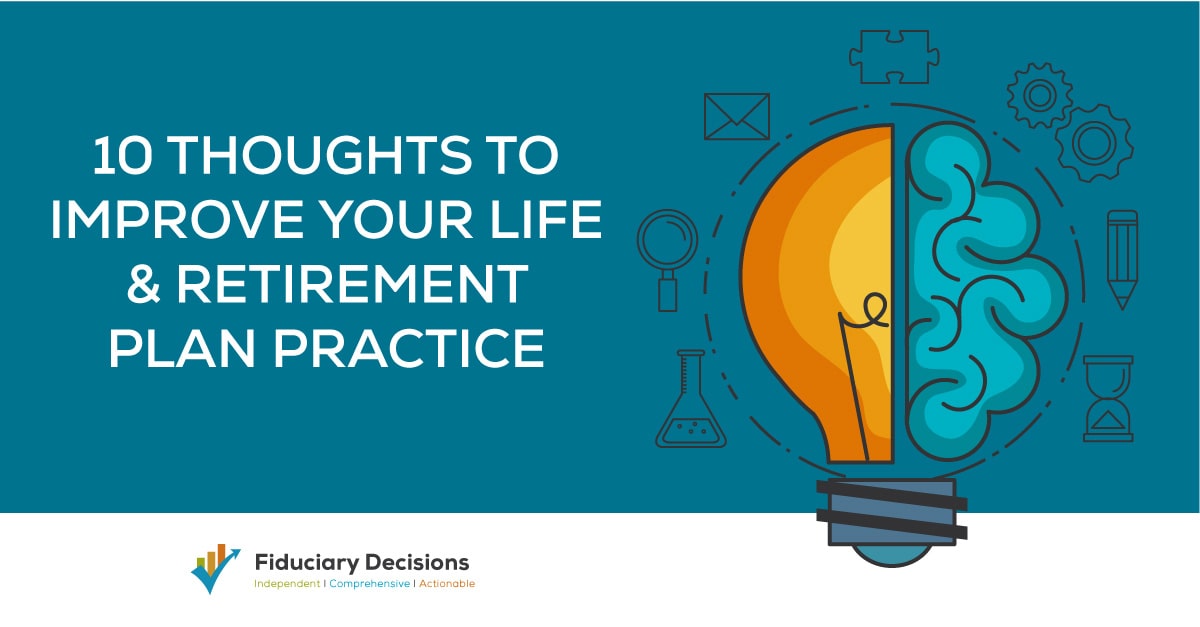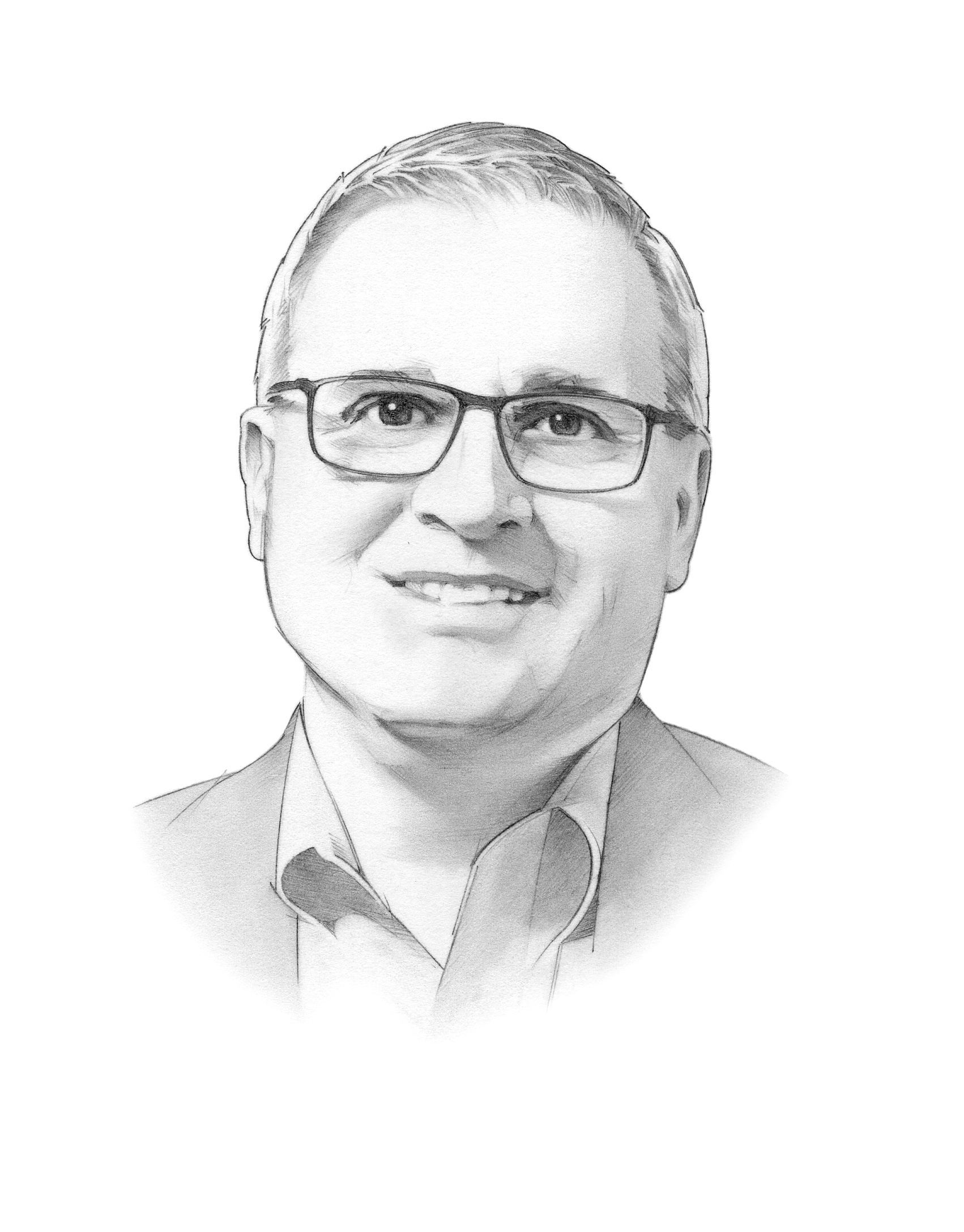10 Thoughts to Improve Your Life & Retirement Practice
by Craig Rosenthal
Dec 09, 2021

As yet another year comes to a close, I have been reflecting on the events of the past couple of years, ranging from joyous to maddening to chaotic. I have thought about how much has changed, stayed the same and been proven. Leaning into that idea, I wanted to share ten thoughts I am going to apply to my professional and personal life in the coming year.
1. Everything takes more time than expected.
Putting in the time to convince a Plan Sponsor that a plan design change is warranted is one thing. Assuring them that they did the right thing while waiting for the participant metrics to show results is another. Set the expectation upfront that good things take time: their plan design changes will pay dividends in better retirement outcomes whether it be tomorrow, the next day or the day after that.
2. Good work isn’t realized overnight.
Completing a great job and knowing you did quality work is satisfying. Waiting for others to realize the value in your efforts is a slow process. It takes many, many great at bats and proven results to demonstrate quality and value. One job well done is worth a pat on the back, while a legacy of great work takes a lifetime.
3. Working hard and working smart are not the same.
A great work ethic will almost always get you to the finish line with your clients, prospects and family. But do you get there in the most efficient and effective manner, so you have time to do more? Periodically re-evaluating how you do things and looking for better ways is just as important as the effort you put in.
4. A little pain now is better than a lot of pain later.
As I get older, I think about playing the long game even more. Small sacrifices that keep longevity in mind add up to huge future advantages. Little things, such as saving a little more now and letting compounding work its magic or stretching before and after you work out and avoiding the doctor (or hospital) later. Thoughtful and healthy choices can lead to a longer and more sustainable life.
5. Writing down your goals.
Each year, take out a piece of paper and write out specific goals for the upcoming year. Stay away from vague goals like, “I want to grow my practice.” Be specific. Why do you want to grow your practice? Is it so you can just bring home more bacon? Is it to be able to hire another associate, invest in more tools, or maybe add on some company benefits? Once you write them down, you’ll find yourself automatically working towards them. Then at the end of the year, you may have hit them or in the worst case, you’ll find yourself closer than when you started. Goals evolve, so make sure to assess them periodically.
6. Take some time.
A few moments of quality time can recharge the batteries. When life gets too hectic or you need a minute, take it and don’t feel guilty. It will almost certainly improve your mental and physical health.
7. Invest in effectiveness.
When has taking the cheap way out ever paid off? Never, right? Don’t cut corners. Do it once. Do it right. For example, implementing the right tools for your practice will help you and your team offer more efficient and higher quality services to clients (and future clients). This will lessen your stress and enhance client relationships.
8. Be honest.
If you mess up, fess up. Better to do it first then to be caught in a quagmire.
9. If possible, worry less.
You’ll get it done – today, tomorrow or the next day. If it truly is pressing, it will get accomplished. What’s important takes priority. And most of the time, you’re putting the pressure on yourself. So, ease up and try not to stress yourself out (and delegate if possible).
10. Be kind.
The cliche is true: everyone is dealing with something. Be kind to the people around you because you will need/want kindness someday, so pay it forward now.
These are my 10 “self-improvement” thoughts going into 2022. What are yours?
About Author:

Craig Rosenthal, Head of Strategy and Chief Marketing Officer
Craig is Head of Strategy and Chief Marketing Officer for Fiduciary Decisions. In this role, he is responsible for driving Product and Partnership strategy as well as the overall messaging and marketing for the firm.


